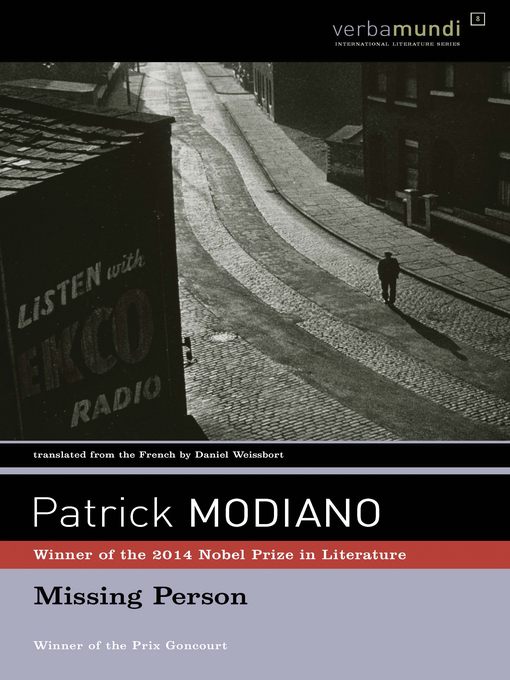
Missing Person
کتاب های مرتبط
- اطلاعات
- نقد و بررسی
- دیدگاه کاربران
نقد و بررسی

"I am nothing." There's Modiano (Honeymoon, 2014, etc.), recipient of the 2014 Nobel Prize in literature, in a nutshell-making this 1978 novel a fine introduction to his work.Originally published as Rue de Boutiques Obscures, or "street of dark shops," with the sense of obscurity as in mystery behind the darkness, Modiano's book works a fruitful premise: in the mid-1960s, a French detective sets out on a quest into his own past, which ends in the preceding decade. At some point before then, it seems, he'd suffered an accident that led to amnesia. Now, his boss has given him a clue of what lies behind the curtain of memory, but what, in those dusty file folders and envelopes and fading photographs, will the man now called Guy Roland find? Things get strange, and fast: he may have once been a Jew from Greece caught up in a bohemian set in the Paris of the Nazi Occupation; he mixed, it seems, with Hollywood actors and Russian emigres. Or was he a diplomat for a South American nation, an international traveler named McEvoy? It's enough to make a person's head spin, but fortunately Roland has a few artifacts to go on, keepsakes and magazines and such, as well as a few tactile clues: "She was wearing some highly pungent perfume which reminded me of something. But what?" Modiano's unaffected exposition opens onto murky depths; soon enough, as Roland begins sifting through the detritus of memory, we're left to wonder whether he's recounting authentic experiences or just groping in the dark. What's clear is that Roland may have good reason indeed to want to forget, making him a perfect stand-in for all France during a time when the Occupation was something all too many people were desperate to forget-and for everyone else to forget as well. Beautifully written and perfectly noirish, as though the world were being seen through a haze of Gauloise smoke. Be warned, though: after reading this, a sensitive soul may well seize up the next time a stranger waves. COPYRIGHT(1) Kirkus Reviews, ALL RIGHTS RESERVED.

May 15, 2005
The titular missing person is Guy Roland, a P.I. who suffers from amnesia and resolves to rediscover his own past, lost to him years before during the Nazi occupation of France. With little more to go on than vague, barely discernable memories, he methodically unearths one small fact after another -a name, a photograph, an address -creating dossiers on himself and others from his past. Moody, atmospheric, and dreamlike, this novel follows conventions of both noir fiction and ghost stories but can be read on many levels. Is Guy's memory loss a metaphor for France's collective amnesia about the occupation? Modiano is a prolific novelist and screenwriter, best known to American audiences for his screenplay of "Lacombe Lucien", cowritten with director Louis Malle, and more recently for his screenplay of the Jean-Paul Rappeneau film "Bon Voyage". "Missing Person" was the 1979 winner of France's prestigious Prix Goncourt. Weissbort's excellent English translation first appeared in Great Britain in 1980. Recommended for all fiction collections. -Janet Evans, Pennsylvania Horticultural Soc. Lib., Philadelphia
Copyright 2005 Library Journal, LLC Used with permission.

May 1, 2005
Twenty-seven years after its original French publication won the Prix Goncourt, this elliptical, engrossing rumination on the essence of identity and the search for self finally enjoys its first U.S. edition (which uses Weissbort's smooth 1980 English translation). Set in postwar Paris, it follows an amnesiac now known as Guy Roland, employed for the past decade by a kindly private investigator. When the PI retires, Roland sets out to lift the veil on his past. As he ably conducts this most personal of investigations, Roland begins to suspect that he may have employed multiple identities, leading a mysteriously compartmentalized existence. He may even have been fleeing the German occupation when his memory was wiped away. Roland's explorations bring home his mentor's observation that we all live in a world where "the sand keeps the traces of our footsteps only a few moments." Even as it opens the door to new mysteries, the enigmatic ending underscores the human drive to preserve those footsteps for as long as we draw breath.(Reprinted with permission of Booklist, copyright 2005, American Library Association.)

























دیدگاه کاربران